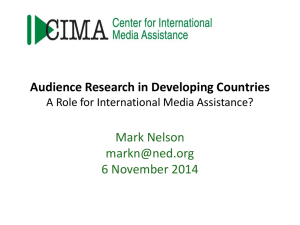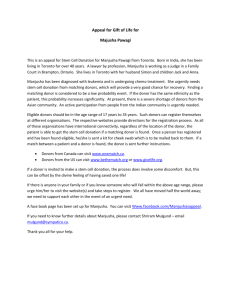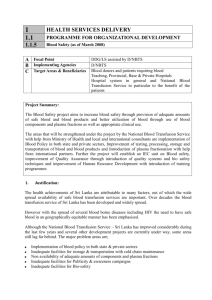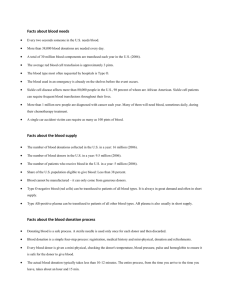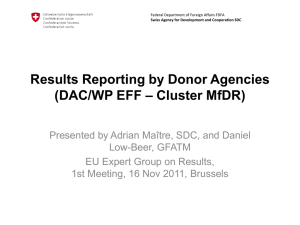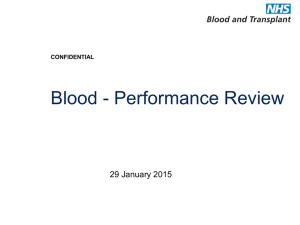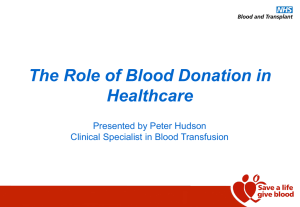Blood Safety - Northern Ireland Blood Transfusion Service
advertisement
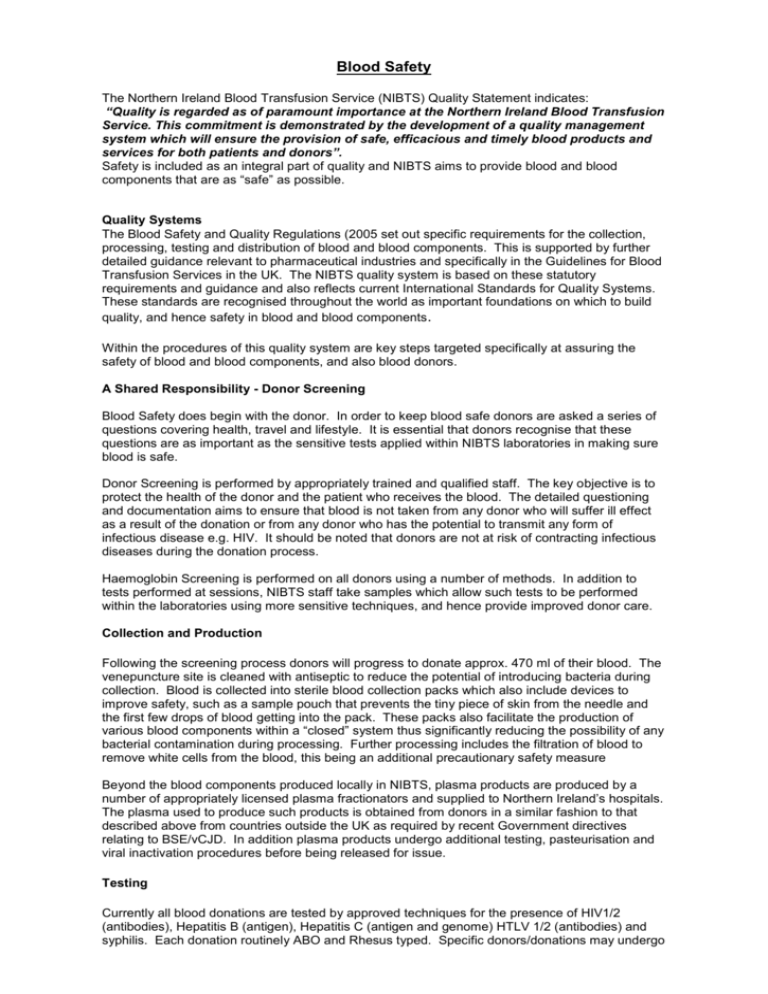
Blood Safety The Northern Ireland Blood Transfusion Service (NIBTS) Quality Statement indicates: “Quality is regarded as of paramount importance at the Northern Ireland Blood Transfusion Service. This commitment is demonstrated by the development of a quality management system which will ensure the provision of safe, efficacious and timely blood products and services for both patients and donors”. Safety is included as an integral part of quality and NIBTS aims to provide blood and blood components that are as “safe” as possible. Quality Systems The Blood Safety and Quality Regulations (2005 set out specific requirements for the collection, processing, testing and distribution of blood and blood components. This is supported by further detailed guidance relevant to pharmaceutical industries and specifically in the Guidelines for Blood Transfusion Services in the UK. The NIBTS quality system is based on these statutory requirements and guidance and also reflects current International Standards for Quality Systems. These standards are recognised throughout the world as important foundations on which to build quality, and hence safety in blood and blood components . Within the procedures of this quality system are key steps targeted specifically at assuring the safety of blood and blood components, and also blood donors. A Shared Responsibility - Donor Screening Blood Safety does begin with the donor. In order to keep blood safe donors are asked a series of questions covering health, travel and lifestyle. It is essential that donors recognise that these questions are as important as the sensitive tests applied within NIBTS laboratories in making sure blood is safe. Donor Screening is performed by appropriately trained and qualified staff. The key objective is to protect the health of the donor and the patient who receives the blood. The detailed questioning and documentation aims to ensure that blood is not taken from any donor who will suffer ill effect as a result of the donation or from any donor who has the potential to transmit any form of infectious disease e.g. HIV. It should be noted that donors are not at risk of contracting infectious diseases during the donation process. Haemoglobin Screening is performed on all donors using a number of methods. In addition to tests performed at sessions, NIBTS staff take samples which allow such tests to be performed within the laboratories using more sensitive techniques, and hence provide improved donor care. Collection and Production Following the screening process donors will progress to donate approx. 470 ml of their blood. The venepuncture site is cleaned with antiseptic to reduce the potential of introducing bacteria during collection. Blood is collected into sterile blood collection packs which also include devices to improve safety, such as a sample pouch that prevents the tiny piece of skin from the needle and the first few drops of blood getting into the pack. These packs also facilitate the production of various blood components within a “closed” system thus significantly reducing the possibility of any bacterial contamination during processing. Further processing includes the filtration of blood to remove white cells from the blood, this being an additional precautionary safety measure Beyond the blood components produced locally in NIBTS, plasma products are produced by a number of appropriately licensed plasma fractionators and supplied to Northern Ireland’s hospitals. The plasma used to produce such products is obtained from donors in a similar fashion to that described above from countries outside the UK as required by recent Government directives relating to BSE/vCJD. In addition plasma products undergo additional testing, pasteurisation and viral inactivation procedures before being released for issue. Testing Currently all blood donations are tested by approved techniques for the presence of HIV1/2 (antibodies), Hepatitis B (antigen), Hepatitis C (antigen and genome) HTLV 1/2 (antibodies) and syphilis. Each donation routinely ABO and Rhesus typed. Specific donors/donations may undergo additional tests e.g. malaria, if such donors declare relevant travel information. This range of tests is under regular review and additional tests may be introduced in the future. Storage All blood, blood components and plasma products are stored within predefined conditions which assure the maintenance of the quality and hence safety. Distribution to Hospitals When a hospital requests blood, blood components or plasma products our computer system, PULSE checks that there are no recorded reasons to doubt the safety of that component etc. PULSE also records where which hospital has received each component or product. This is facilitated by the application of unique donation identification numbers to all packs, samples and documentation at the time of collection and detailed tracking of these using PULSE. At your local hospital When you receive blood, blood components or plasma products, the laboratories will, where appropriate, have carried out tests e.g. patient blood grouping, and matching the donor cells against this recipient, to ensure as far as possible compatibility. .

